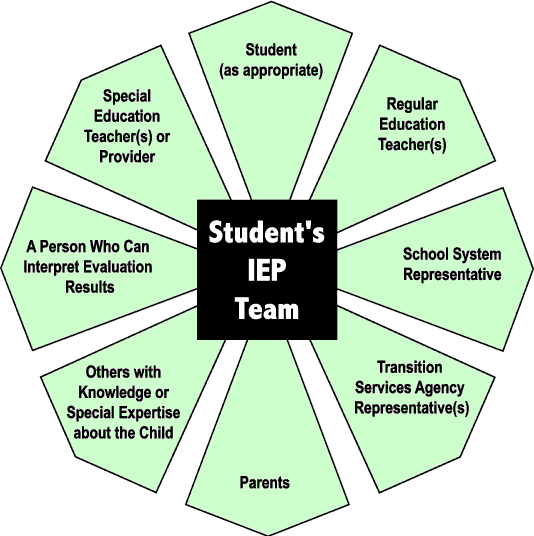
From the onset of diagnosis (as early as age 3), if a child is eligible to receive special services and education, they are required by the law, Individuals with Disabilities Education Act (IDEA), to have a Individualized Education Program (IEP) up until the point an individual is out of high school (as late as age 22). An IEP is a document that maps out the child's current educational level, their educational goals, and the set of services relevant to the weaknesses and strengths of the child. Each individual with an IEP is equipped with a team of teachers and advisors that discuss the progress of the student at the beginning of the school year accompanied with smaller scale meetings quarterly throughout the year.
The unfortunate issue of IEPs is that often times the educational advisors speak in a jargon unfamiliar to the parent, leaving them feeling like they are unable to get the services their child deserves. It is important for parents to find advocates well versed in the area so they can help them get the best outcome for their child. Advocates can cost $75 per hour for a non-lawyer, and $200 per hour for a lawyer but there are some IEP advocates employed by donation only so their services are free to the parent.
What is in place for individuals before needing Adult Transition?

State Funded
Adult Transition Programs
Adult Transition Programs that are state funded programs that combine special services and integration strategies to the eligible individuals between the ages of 18-22. These services are only available to the young adults that did not receive a High School Diploma, just a High School Certificate. While this is helpful to most individuals in the special services, it can pose a difficult obstacle to those with a high-functioning autism. The reason being, most people with Asperger's have higher cognitive abilities so academics isn't the issue...social immersion is. So far their aren't any required courses on a high school (and below) level that emphasize social integration or social rules and cues. Many case carriers are forced to modify a young adult's curriculum so they don't qualify for a diploma, but rather the certificate. This further creates controversy toward a person's transition into the workforce.
Look up your school district's website to find out more specifics, as some may differ.





